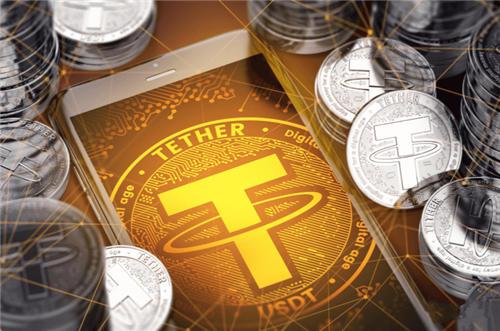|
|
Okay, so I need to figure out what Accenture's tokenized stock is. Let me start by recalling what tokenization means in finance. From what I know, tokenization involves converting assets into digital tokens on a blockchain. This could be shares in a company, real estate, or other assets. The idea is to make them more liquid and accessible to a broader audience.
Now, Accenture is a big consulting and tech firm. They've been involved in blockchain projects before, like their work with Microsoft on Azure. Maybe they're exploring tokenizing their stock as part of their innovation strategy. But how exactly would that work? If Accenture tokenize their shares, existing shareholders would get tokens representing their equity. These tokens could be traded on a blockchain-based exchange, right?
Wait, but there are regulatory issues. Stock tokenization might be subject to securities laws. Depending on the jurisdiction, this could require approvals from financial regulators. For example, in the US, the SEC would have a say. Accenture would need to ensure compliance, which might involve setting up a structure that allows for tokenized shares without violating regulations.
Another aspect is the technology. They might use a public blockchain like Ethereum or a private permissioned blockchain. Ethereum has ERC-20 tokens, which are common for security tokens. But security tokens have different regulations than utility or payment tokens. Accenture would need to work with a legal and tech team to structure this properly.
Benefits could include increased liquidity, lower transaction costs, and easier fractional ownership. That might attract more investors, including those who can't afford whole shares. However, there are risks. If the token price fluctuates, it could affect shareholders negatively. Also, technical issues with the blockchain, like smart contract vulnerabilities, could be a problem.
I should check if Accenture has actually done this. Maybe they have a pilot project or partnership. A quick search in my mind—I recall Accenture's involvement in tokenization projects, but not specifically tokenizing their own stock. They might be advising other companies on tokenization strategies instead.
Wait, the user mentioned "Accenture tokenized stock," so maybe there's a specific initiative. Let me think. Accenture's stock is listed on the New York Stock Exchange (NYSE) as ACN. Tokenizing it would mean creating digital tokens representing those shares. If they do this, existing shareholders might get tokens automatically, or new investors could buy tokens through a digital platform.
But how does the conversion work? Would tokens be equivalent to actual shares, or are they a separate security? There's a difference between tokenizing existing shares and issuing new tokens. If it's the former, it's more about enhancing the existing stock structure. If it's the latter, they might be creating a new class of securities.
Also, tax implications. Tokenized shares might be taxed differently, or there could be reporting requirements. Accenture would need to communicate this clearly to shareholders.
Another point is the exchange. Where would these tokens trade? On a centralized exchange like Coinbase or a decentralized exchange (DEX). But again, regulatory compliance is key here. They might need to partner with a regulated exchange to ensure proper oversight.
Security is another concern. Storing private keys for tokens could expose investors to hacking. They'd need secure wallets and possibly a custodial service.
In summary, Accenture tokenizing their stock would involve converting shares into blockchain-based tokens, likely on a regulated platform, ensuring compliance with securities laws, and offering benefits like liquidity and accessibility while managing risks like regulatory hurdles and technical vulnerabilities. However, I'm not sure if this is a current or past project of Accenture. They might be exploring it as part of their innovation labs or through partnerships.
Accenture's potential tokenized stock initiative involves converting traditional shares into digital tokens on a blockchain, aiming to enhance liquidity, accessibility, and efficiency. Here's a structured overview:
Key Components:
Tokenization Process:
Conversion: Existing shareholders might receive tokens representing their equity, or Accenture could issue new tokens. This could be done via a public blockchain (e.g., Ethereum with ERC-20 tokens) or a private permissioned network.
Smart Contracts: Automated execution of share ownership, voting rights, and dividends through programmable smart contracts.
Regulatory Compliance:
Security Tokens: Tokens would likely fall under security token regulations, requiring oversight from entities like the SEC in the U.S. or ESMA in the EU.
Legal Framework: Accenture would need to collaborate with legal experts to ensure compliance with securities laws, possibly through a structured security token offering (STO).
Exchange and Trading:
Platforms: Tokens could trade on regulated exchanges (e.g., Coinbase) or decentralized platforms (DEXs), with Accenture ensuring liquidity and market integrity.
Global Accessibility: Enables fractional ownership and global trading, attracting retail and institutional investors.

Benefits:
Liquidity: Tokens can be traded 24/7, unlike traditional stock markets.
Cost Reduction: Lower transaction fees and settlement times via blockchain.
Inclusivity: Attracts investors who can't afford whole shares.
Risks and Challenges:
Regulatory Hurdles: Strict compliance requirements and potential delays in approval.
Technical Vulnerabilities: Smart contract bugs or blockchain security risks.
Market Volatility: Token prices may fluctuate more than traditional stocks.
Tax and Reporting: Complex tax implications and regulatory reporting obligations.
Accenture's Role:
Innovation Labs: Likely explored through Accenture’s blockchain-focused initiatives, such as their work with Microsoft Azure.
Advisory Services: Accenture may assist other firms in tokenization strategies rather than tokenizing its own stock.
Current Status:
As of now, there’s no public information indicating Accenture has tokenized its NYSE-listed stock (ACN). They may be in a pilot phase or exploring partnerships. Their involvement is more likely in advising others on tokenization rather than executing it themselves.
Conclusion:
If Accenture proceeds, tokenized stock would modernize equity trading but require careful navigation of legal, technical, and market risks. It aligns with their broader tech innovation goals but remains speculative without official confirmation. Investors should monitor Accenture’s announcements or regulatory filings for updates.
|
|